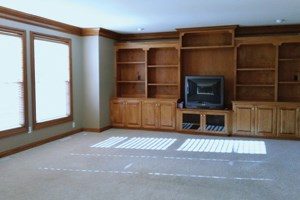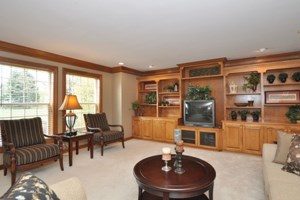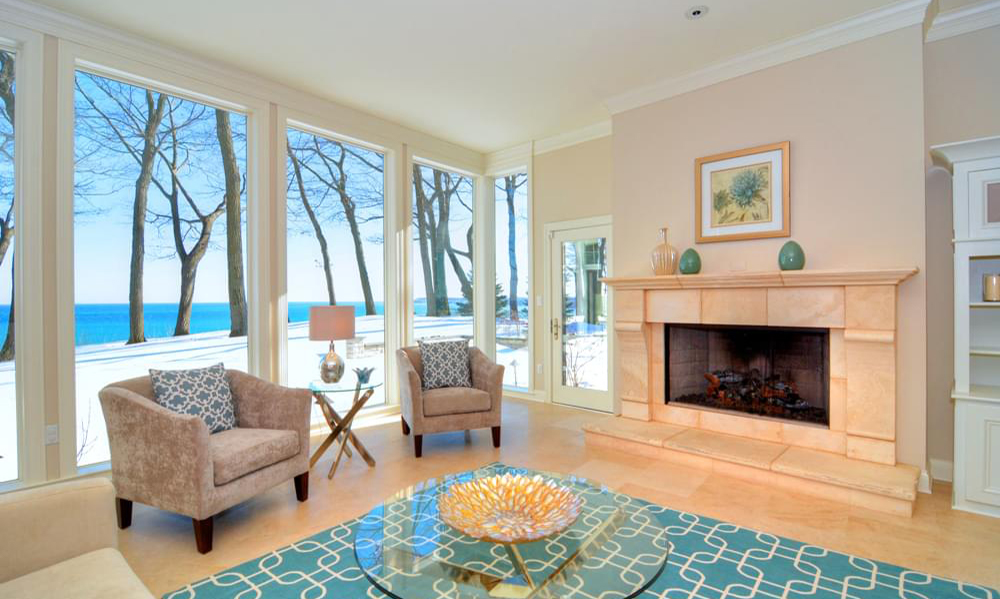Think about the retail stores you shop in. Are they organized? Do they smell good? How is the lighting? Is a well decorated store somewhere we spend more money? The same holds true for a well-staged home. Research shows it only takes seven seconds for a home buyer to determine if they are interested in your home.
Just ask any new home builder. All of the newly constructed homes are decorated to ‘model home status’, and most major home builders have professional decorators as a part of their team.
New Home Builders know that decorating gives their property the best chance of selling for the highest price. Seller’s, like new home builders, should plan their home sale accordingly. Like a model home; a staged home creates a comfortable atmosphere. The buyers can sit down to ponder the home, and it easier for buyers to see how their furniture will fit into the space.
 Staging is a proven method to reach a seller’s best price and is utilized by many businesses, including local real estate company Powers Realty Group started staging homes in 2004 as part of their real estate service offering to customers. The company stages both occupied and vacant homes through the Metro Milwaukee Area, and has 3rd Ward Warehouse space to house all of their staging inventory.
Staging is a proven method to reach a seller’s best price and is utilized by many businesses, including local real estate company Powers Realty Group started staging homes in 2004 as part of their real estate service offering to customers. The company stages both occupied and vacant homes through the Metro Milwaukee Area, and has 3rd Ward Warehouse space to house all of their staging inventory.
“We have an in-house staging consultant and decorator to assist you in the décor planning of your home. We assist our clients with a recommended list of handymen, painters, and just about anything you would need in the way of services to help you in the sale of your home.”
Buyers stay longer in a staged property because viewing a home is a sensory shopping experience. If the sensory experience is good for the buyer, the home is likely to fetch 17% more than an un-staged home.
Having a real estate team that can help you with painters, contractors, stagers and gardeners on the ready is an important detail not be overlooked in preparing for your home’s debut into the market. The market is too competitive to leave it to chance and hope for your price.
Making minor repairs and other improvements before the home is on the market can also influence the offers that are made on the home. Because the cost of improvements is often used as leverage in the bidding process, it can help to shore up those imperfections.
While your own belongings are what make your house a home, the distraction of the gaudy knickknacks that only have value to you may prevent would-be buyers from imaging themselves in the house. Your personal items can also distract from most important parts of home searching, such as unique architectural features. In the end, it is your house that needs to be memorable, not the things in the home.
As it should be, the little things that a staging professional focuses on are often overlooked by the average person. The minor clutter and not-quite-organized state of most people’s day-to-day life can affect a potential buyer’s first impression of a home. Clutter can lead buyers into thinking the home doesn’t have the space to accommodate everyday life.
Other subtle advantages of staging your home benefit marketing and new media. Along with the in-person effect, home staging is going to make almost any home more photo friendly. In a time when many home searches begin amongst the litany of real estate websites, a staged home that looks like it is the cover shot of a magazine can set a property apart.
A funny quirk about staging, unrelated to how it looks, is how the house smells. One of our strongest sensory impressions is how things smell, and vacant house smell can be musty, stale and unattractive.
Staged properties, by virtue of having a living environment of fabrics, candles and soaps in the home, smell friendly and warm. Smell is one of the strongest impressions people have of your home. If your home smells warm and cozy, you are much more likely to get an offer.
The biggest challenges with vacant properties are that vacant properties can look distressed, lonely, dark, and cold. Even in the best vacant home condition, cold and dark will not attract your best offer.
There are numerous benefits to home staging. Making the effort to showcase your home in the best possible light to potential buyers can often make a significant difference in what a home sells for.
Excerpts from this article were originally published by Powers Realty Group. www.powersrealty.com
RECENT MARKET DATA
– A staged home stays on the market an average of 25 days before it sells, while an non-staged home stays on the market an average of 145 days.
– Staged homes for 17% more than a non-staged home.
– On average, home buyers spend between 30–45 minutes looking at a staged home, while they spend only 12 minutes looking at a non-staged one.





